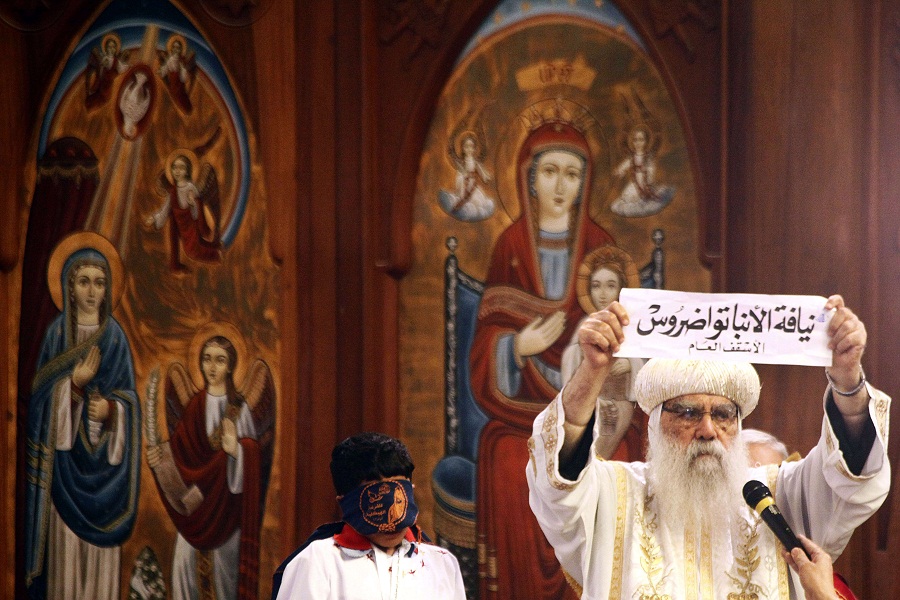By Marwa Al-A’asar
CAIRO: The newly-established Egyptian Journalists’ Independent Syndicate aims to defend the rights of journalists’ as well as develop the profession, one of its founding members said.
Despite the original Journalists’ Syndicate’s constant refusal to recognize a parallel entity, the Ministry of Manpower approved Wednesday the proclamation of the independent syndicate.
“All complains filed by the Journalists’ Syndicate proved to have no legal basis. We are a legal entity now that can monitor the profession, hold events, intervene to solve journalists’ disputes with boards as well as join international unions,” founding member Wael Tawfik told Daily News Egypt on Friday.
“Our next step is to form taskforces to work on and seek the amendment of the press law, to stipulate minimum wages for journalists and to set rules for information disclosure,” he added.
Tawfik said the independent syndicate was formed more than two years ago as an association to seek the same goals, and developed into a syndicate following the January 25 Revolution.
About 400 journalists, including members of the original syndicate, have joined the independent entity so far.
TV producers, online journalists, foreign media reporters, news anchors and mass communication majors are all eligible to join the new syndicate, the key requirement being a one-year portfolio of published or broadcast work.
Another independent syndicate for online journalists was established in April.
“I’m not against the multi-union system if all journalists unanimously agree on it, as it is followed in developed countries all over the world. I’m only against forming entities in a random manner,” said Journalists’ Syndicate board member Gamal Fahmy.
For decades, only journalists belonging to state-owned and locally-licensed independent newspapers were allowed to join the journalists’ syndicate. This excluded thousands of journalists who did not meet membership criteria and, accordingly, had no entity to protect their rights.
Translators and advertising agents at state-owned papers were offered contracts allowing them to join the syndicate though they did not directly practice the journalism profession.
Some articles in the syndicate bylaws were deactivated to limit the number of members, including allowing journalists working for newspapers and magazines operating in Egypt but published via an offshore license to join the syndicate. Online journalists were also ineligible for syndicate membership.
Thousands of Egyptian journalists have therefore been deprived of being affiliated to an entity that defends their interests and upholds their rights.
“I personally consider everyone who works as a journalist, whether on a full-time, part-time or freelance bases, a syndicate member even if [his or her] membership is not approved,” Fahmy said.
“We should all engage in a dialogue to amend the press law and the syndicate’s bylaws so everyone practicing the profession can have equal rights,” he added.
In the past, the government supported candidates running for board elections, thus maintaining the state control of the syndicate. “The syndicate is no longer controlled by the government like the case during the era of the overthrown regime,” he said.
According to Fahmy, some articles in the press law and the syndicate’s bylaws require drastic modification, while others are effective.
“For example, these articles were set before the online media appeared, which prevents those working in such a vital sector from joining the syndicate,” he said.
“Other articles implemented in 1970 do not allow the police or the prosecution to subject any journalist charged with a publishing-related crime prior to trial,” he added.
The Journalists’ Syndicate, however, played a key role as a podium for free speech and reform demands. Its gate and the stairs leading up to it were often the site of anti-regime protests and sit-ins before and during the revolution, while press conferences of political parties and opposition groups were regularly held inside the Downtown building.


